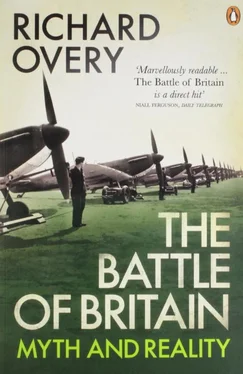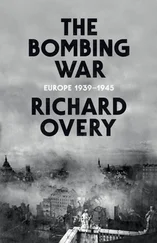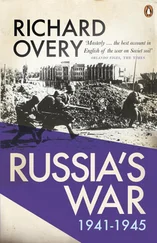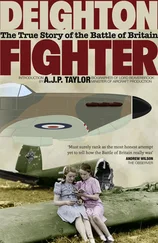German bomber aircraft were generally no match for the RAF. The Junkers Ju 87B dive-bomber suffered the same fate as the Me 110. Much slower than the heavy fighter, it was highly vulnerable during bomb attack and was withdrawn early in the battle. The standard twin-engined bombers, the Heinkel 111 and Dornier 17, were early designs and faced obsolescence by 1940. They were slow and poorly armed for combat with high-class fighters; they carried a small bomb-load (around 2,000 pounds maximum), which they could deliver with at least a limited accuracy thanks to a system of radio navigational beams. The newest German bomber, the Junkers Ju 88A-1, could fly further, had a higher speed, and in a dive could not only bomb with greater accuracy, but could outrun a Spitfire. It was produced in small numbers in 1940, and the maximum bomb-load was only 4,000 pounds, about one-fifth of the load carried later in the war by the Avro Lancaster used in the bombing of Germany. Like all German bombers, its defensive armament was weak, and even its extra speed brought it no immunity during daylight operations against the more manoeuvrable and heavily armed British fighters.
The German Air Force also possessed a large complement of highly qualified air crew, with extensive combat experience. Although the single-engined fighter force had fewer pilots than Fighter Command, they survived longer and had a higher rate of operational readiness. 33Most of the pilots who began the air battle had been trained well before the outbreak of war, though night-flying technique was neglected until the summer of 1940. The average age of German pilots captured in June and July was twenty-six; their average length of service was almost five years. 34The pilots who engaged in the battle represented the cream of the German Air Force. The training system in 1940 was reformed, like the British system, to try to speed up the throughput of pilots, but standards of training were rigorous. Even if Udet had succeeded in conjuring more aircraft out of German factories, the air force would still have had difficulty supplying the men to fly them.
The task the German Air Force was called on to perform resembled, at least superficially, the opening days of the campaigns against Poland and France when the enemy air force was swiftly neutralized by concentrated bomber and dive-bomber attacks on airfields and support services. A German radio broadcast in early August explained the similarity: ‘the main weapon is the bomb. German bombers will be employed with concentrated effect and in continuous waves. The effect obtained by them has already been shown in such towns as Warsaw, Rotterdam…’ 35German Air Force records suggest, however, that the fighter was regarded as the principal weapon. The object of the air campaign was to wipe out Fighter Command, using the bombers as bait. ‘Whether the objectives were convoys in the Channel,’ ran a post-war interrogation of German air leaders, ‘or airfields inland, or London, the object was always the same – to bring the defending squadrons to battle to weaken them.’ 36
There was in truth a certain confusion in the instructions issued to the German Air Force in July and early August. On 11 July the three air fleets were issued with an operational directive to begin ‘intensive air warfare against England’, and on 17 July they were ordered to full readiness. Probing attacks began against ports and shipping on the basis of instructions issued earlier in May, but still current, for blockade attacks on British imports. Yet another directive, issued on 16 July for Operation Sealion, ordered further preparations for invasion. Air fleets were expected to attack coastal defences, enemy troop concentrations and reserves, key communication targets and naval installations. The only object they were not yet ordered to destroy was the enemy air force, whose elimination was supposed to be the primary pre-condition for launching an invasion at all. Only in late July did the air force commanders present to Goering their plans for winning air superiority, and not until 1 August did Hitler issue a further directive requiring the air force ‘to overpower the English air force… in the shortest possible time’ through attacks on the whole air force structure and its supporting industries. Once ‘local or temporary air superiority’ was gained, the air force was then expected, without explanation, to switch back to the blockade role it had started with. The knock-out blow against the RAF was set to begin on or shortly after 5 August. 37
This plethora of orders reflected the deeper uncertainties about the conduct of the war at the highest level. The air force was much clearer in its own mind about the primary objective, and confident of achieving it. On 6 August at Carinhall, his sumptuous country estate outside Berlin, Goering had a final meeting with Kesselring, Sperrle and the commander of Air Fleet 5, General Hans Stumpff. The operational plan they adopted was straightforward: in four days Fighter Command would be destroyed over southern England. The plan was then to move forward systematically sector by sector, destroying military and economic targets up to a line from King’s Lynn to Leicester, until daylight attacks could finally be extended at will over the whole of the British Isles. The initial aim was to send over small forces of bombers with a light escort, leaving the fighter force free to hunt out and destroy enemy fighters. The day for the start of the attack was codenamed Adlertag, day of the eagles. 38
The precise date for the start of the campaign was more difficult to fix, since success depended critically on a spell of good weather. In Berlin the popular mood worsened at the weeks of apparent inactivity, even when skies were clear. ‘Wonderful weather,’ Goebbels noted acidly. ‘Too good for our air force.’ He detected a certain nervousness in the public: ‘The people fear that we have missed the right moment.’ But in Hitler he observed a real hesitancy to take ‘a damn difficult decision’. 39The date for attack was finally fixed for 10 August, but bad weather over southern England forced postponement, first to the following day, then to the morning of 13 August. The tension deepened as each day the weather intervened. ‘People wait and wait for the great attack,’ Goebbels noted for 12 August. 40The following day the weather was indifferent, and attacks were postponed again until the afternoon. By chance, news of the postponement arrived too late for hundreds of aircraft already airborne. They pressed on under poor flying conditions to launch, at only part strength, the long-expected assault. Adlertag began not with a bang, but with a whimper.
The strength of the British fighter defence, on which the German daylight attacks and the hopes of the coveted mastery of the air had come to grief, had perhaps been under-rated… The enemy’s power of resistance was stronger than the medium of attack.
OTTO BECHTLE, LECTURE IN BERLIN, FEBRUARY 1944 1
Most battles have a clear shape to them. They start on a particular day, they are fought on a geographically defined ground, they end at a recognizable moment, usually with the defeat of one protagonist or the other. None of these things can be said of the Battle of Britain. There is little agreement about when it started; its geographical range constantly shifted; it ended as untidily as it began. Neither air force was defeated in any absolute sense.
Uncertainty about when the battle started reflects the nature of the air war fought in 1940. Minor bomb attacks began on Britain on the night of 5/6 June, and small-scale, spasmodic raids continued throughout the rest of June and July. The intensification of the air assault in the second week of August prompted the Air Ministry later to assign 8 August as the start of what came to be called the Battle of Britain. When Dowding wrote his ‘Despatch’ in August 1941, he was reluctant to impose a neat chronology because operations ‘merged into one another almost insensibly’. He rejected 8 August and suggested as the starting point 10 July, the date of the onset of heavier attacks along the Channel coast. 2For the German side 13 August was supposed to be the day the battle for air supremacy commenced, but the attacks on that day, though larger in scale, were not regarded on the British side as a distinctive change. Air signals intelligence simply reported: ‘Activity has been above normal in the past 24 hours.’ 3Even allowing for British understatement, there was little to distinguish the first days of the German assault from the previous weeks of air attack. Air Vice-Marshal Park, whose 11 Group held the front line, observed a sharp change only on 18 August, when major attacks began on fighter airfields. There may be a good case for seeing this date as the start of the decisive phase of the battle, but air fighting in defence of Britain was continuous from June onwards.
Читать дальше












